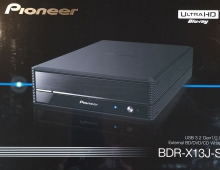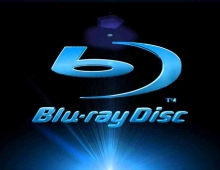
NPD: DVD Still Dominates Home Video in the U.S
According to The NPD Group market research, watching movies and other video content on DVD and Blu-ray Disc (BD) comprises the lion?s share of home-video acquisition and viewing, even as newer digital methods are beginning to gain a foothold in the consumer market.
In fact DVD and BD sales and rentals represented 88 percent of consumer spending on home video content, based on a survey that asked about home video consumption over the previous three months.
Results from NPD?s March 2009 update to the "Entertainment Trends In America" consumer tracking study revealed that the average U.S. home video consumer reported spending an average of $25 per month on all types of home video purchases and rentals. When it comes to spending on home video content: 63 percent was spent on DVD purchases; 7 percent on BD purchases; 18 percent on DVD/BD rentals from retail stores, subscriptions or kiosks; 9 percent on video on-demand (VOD); and 3 percent on digital downloads and online streaming.
When consumers were queried about all the ways they watched a full-length movie in the past three months, digital options were not widely used; however, the category has grown since last year. According to NPD 9 percent of consumers with home Internet connections reported watching movies streamed online in the past three months, versus just 5 percent last year; 8 percent rented a digital movie download ? an increase of 4 percentage points since last year. Viewing movies downloaded through game consoles attracted fewer than 5 percent of consumers.
According to the research, eight out of 10 digital movie downloaders also reported buying or renting a DVD, which compares to only 50 percent for the population as a whole; 25 percent claimed to buy or rent a Blu-ray disc, versus 5 percent overall.
"While many in the home video industry worry that digital consumers might walk away from packaged media, that hasn?t happened yet," said Russ Crupnick, entertainment industry analyst for NPD.
"Discs are still and by far the dominant way Americans enjoy home video, but there is an increasing appetite for digital options," Crupnick said. "The good news is that the consumers engaging with digital video today also tend to be heavy consumers of DVDs and Blu-ray Disc, but it remains to be seen ju
Results from NPD?s March 2009 update to the "Entertainment Trends In America" consumer tracking study revealed that the average U.S. home video consumer reported spending an average of $25 per month on all types of home video purchases and rentals. When it comes to spending on home video content: 63 percent was spent on DVD purchases; 7 percent on BD purchases; 18 percent on DVD/BD rentals from retail stores, subscriptions or kiosks; 9 percent on video on-demand (VOD); and 3 percent on digital downloads and online streaming.
When consumers were queried about all the ways they watched a full-length movie in the past three months, digital options were not widely used; however, the category has grown since last year. According to NPD 9 percent of consumers with home Internet connections reported watching movies streamed online in the past three months, versus just 5 percent last year; 8 percent rented a digital movie download ? an increase of 4 percentage points since last year. Viewing movies downloaded through game consoles attracted fewer than 5 percent of consumers.
According to the research, eight out of 10 digital movie downloaders also reported buying or renting a DVD, which compares to only 50 percent for the population as a whole; 25 percent claimed to buy or rent a Blu-ray disc, versus 5 percent overall.
"While many in the home video industry worry that digital consumers might walk away from packaged media, that hasn?t happened yet," said Russ Crupnick, entertainment industry analyst for NPD.
"Discs are still and by far the dominant way Americans enjoy home video, but there is an increasing appetite for digital options," Crupnick said. "The good news is that the consumers engaging with digital video today also tend to be heavy consumers of DVDs and Blu-ray Disc, but it remains to be seen ju





















